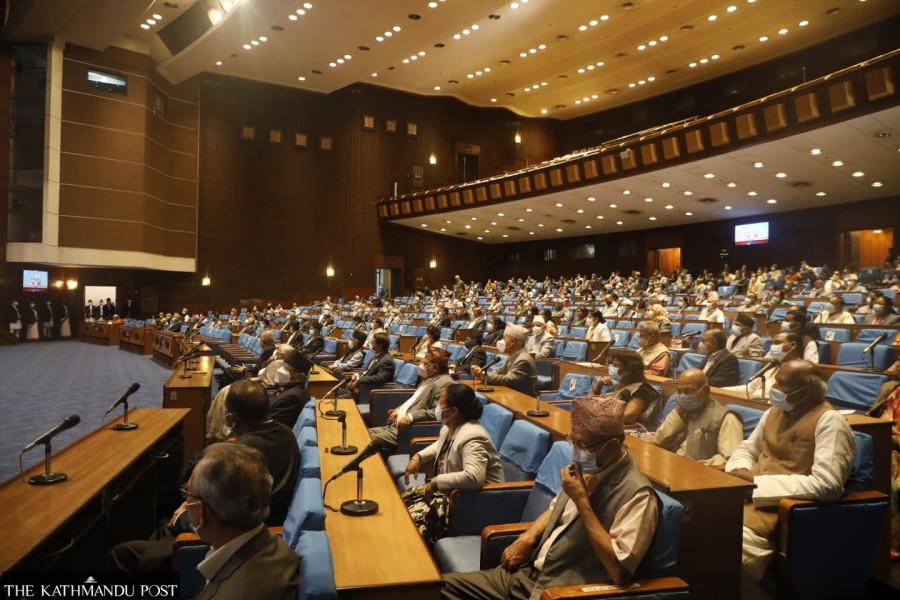Editorial
The show's over
Parliamentary democracy is finally back on track after months of disruption. There is no looking back now.
It takes an enormous amount of misadventures to transform a ruling party with near absolute majority into an opposition party in Parliament. But that is exactly what KP Sharma Oli accomplished during his latest stint as prime minister of Nepal even as he embroiled the country into a seemingly unending spiral of instability.
This week, though, there is finally some light at the end of the tunnel for Nepali politics. After months of the political quagmire that began with Oli’s dissolution of Parliament on December 20 last year, followed by a second dissolution on May 11 this year, Nepali politics has finally returned to a semblance of stability.
The Supreme Court played decisive roles both times while invalidating Oli’s regressive actions, giving Nepalis the assurance that the judiciary has not at all been "sold out". Political scientists and constitutional analysts will for years from now hold debates on the merit of the top court’s unequivocal order to appoint Sher Bahadur Deuba as prime minister. But what is certain is that the order paved the way for safeguarding Nepal’s parliamentary democracy that has almost always remained a victim of the whims of political leaders.
Next came the decisive vote by the members of the House thus restored. On Sunday, 165 lawmakers from across the political spectrum expressed their confidence in Deuba as prime minister. Significantly, 22 lawmakers from the CPN-UML professed confidence in Deuba in what can be termed as a triumph of parliamentary democracy over party politics or authoritarian leadership, also reestablishing lawmakers' individual agency and principle of conscience vote as envisioned by the constitution in Article 76 (5).
The Madhav Kumar Nepal-Jhalanath Khanal faction of the erstwhile ruling party was understandably torn, until the last hour, between standing firm to save Parliament and conceding to their own party’s decision to vote against Deuba. But ultimately, 14 lawmakers from the Nepal-Khanal faction supported Deuba while 10 abstained. Surprisingly enough, eight lawmakers from Oli’s camp also voted for Deuba, clearly exposing Oli’s dwindling popularity among his own loyalists.
Oli’s authoritative tendencies within the party as well as in governance brought us where we are today. We should never have come to this situation in the first place, because the people had given a historic mandate to the Oli-Prachanda-led Nepal Communist Party. Due to his bloated ego, Oli became a burden for Nepali politics as he shattered the people’s aspirations for a government that remains intact for a full five-year term. The party is in tatters now, and we can only expect Oli to become even more vindictive towards the dissenters.
But the storm that Oli’s misadventures brought to parliamentary politics has settled for now with the advent of Deuba. At the end of the months-long imbroglio, what is certain is that the supremacy of parliamentary democracy has been re-established and the individualistic attempts of a certain leader at becoming an elected dictator vanquished.
It is time to remember that our democracy is still at a nascent phase, and it needs continued safeguarding and nurturing. The march to democracy is pretty long and winding, and the only option we have is to pick ourselves up when we falter and move on while making sure that we do not repeat the same mistakes again.




 27.41°C Kathmandu
27.41°C Kathmandu














